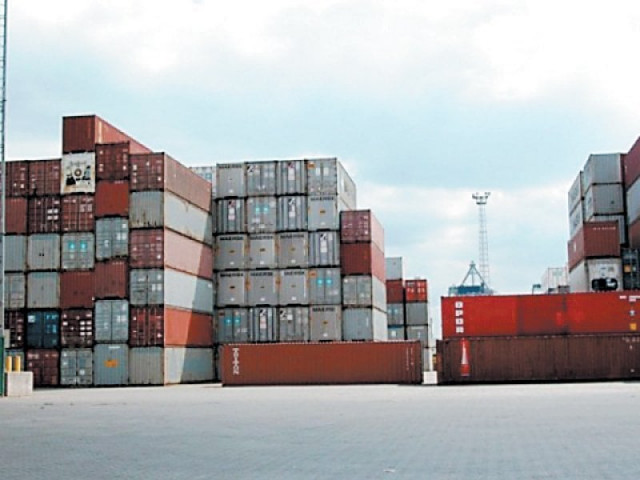Without pre-shipment inspection: Influx of hazardous plastic scrap continues despite ban
Govt fails to enforce import quota set for plastic manufacturers.

The climate change ministry refused to take responsibility, stating that it lacked the infrastructure to inspect import shipments. PHOTO: FILE
The government has failed to enforce plastic scrap quota in the wake of a tussle between the Ministry of Commerce and the Ministry of Climate Change, which are reluctant to shoulder the responsibility for implementing the policy, providing a dumping ground for the hazardous waste produced by Middle Eastern countries.
According to industry sources, the current trade policy, like the previous one, allows only plastic manufacturers to import non-hazardous plastic scrap and assigns quota to them.
Previously, most of the plastic scrap was imported by traders for re-sale, therefore, the new measures can produce desired results only when they are implemented effectively.
In a recent meeting, the Ministry of Commerce decided to apply the new policy to the import of plastic scrap. During deliberations, it asked the climate change ministry to enforce the quota, but the latter refused to take responsibility, saying it lacked the infrastructure to inspect import shipments.
In the hearing of a case, the Lahore High Court had asked the commerce ministry to present the methodology set for awarding the plastic scrap import quota to the registered manufacturers/importers in the next hearing. The court also gave a stay order regarding some clauses of the new trade policy that deal with the import of plastic scrap.
At present, the importers are bringing the scrap under the previous policy because of the stay order, but they complain that customs intelligence officials are harassing them.
Heavy imports from Saudi Arabia
Statistics for 2011 and 2012 indicate that Pakistan has become a major dumping ground for all kinds of plastic scrap, especially from Saudi Arabia. Out of over 70,000 tons of scrap imported during the two years, over 32,000 tons came from Saudi Arabia.
According to sources, heavy imports from Riyadh come following massive dismantling of infrastructure there, resulting in piling up of thousands of tons of sewerage and drainage pipes as well as other plastic scrap.
This is lifted by Pakistani importers without any pre-shipment inspection by an authorised agency in the exporting country. Importers get this potentially hazardous scrap released from Pakistani ports without any proper check, they say.
The scrap imported from Gulf states comprise all kinds of hazardous material such as medical and clinical waste, sewerage and drainage pipes, cable insulation, bottles, food containers, packaging films, etc. They contain contaminants and traces of pesticides, pest excrement, chemicals, sewage, infectious diseases, food particles and unknown composition of polymers which are toxic and eco-toxic.
This influx continues in spite of a more environmentally conscious import policy announced by the Ministry of Commerce on March 8 last year. Under the policy, import of hospital waste of all kinds, used sewerage pipes and used chemical containers is banned.
No recycling
In an effort to regulate imports more effectively, it has been decided that plastic scrap can only be imported by industrial consumers with checks and balances placed by Environment Protection Agencies of provinces. There is also a condition that all import consignments should be examined by pre-shipment inspection companies to ensure their compliance.
Sources in the Environment Protection Department believe that plastic scrap is largely imported by the traders who neither have proper recycling nor storage facilities in industrial areas. Instead, they store the scrap in residential neighbourhoods, exposing millions of people to the hazardous material.
According to international standards, a proper recycling facility should be equipped with washing arrangements and an effluent management system. Such facilities are never permitted in residential areas as dust and fumes are generated with heavy metals, leading to the risk of dangerous health problems such as lead poisoning.
“We hope that the law prevails and eco-friendly measures are implemented effectively to protect the wellbeing of the country’s citizens,” a government official commented.
Published in The Express Tribune, January 26th, 2014.
Like Business on Facebook, follow @TribuneBiz on Twitter to stay informed and join in the conversation.



















COMMENTS
Comments are moderated and generally will be posted if they are on-topic and not abusive.
For more information, please see our Comments FAQ